 On the evening of March 9th, 2023, a tragic event occurred at a Kingdom Hall of Jehovah’s Witnesses in Hamburg, Germany. A total of 61 people were in attendance, with 36 present in person and 25 joining online.
On the evening of March 9th, 2023, a tragic event occurred at a Kingdom Hall of Jehovah’s Witnesses in Hamburg, Germany. A total of 61 people were in attendance, with 36 present in person and 25 joining online.
According to reports, a 35-year-old man, identified as a former member of the Jehovah’s Witnesses, shot 10 times into a vehicle with a lady inside who escaped, unharmed outside the Kingdom Hall. He then entered the building, firing 135 rounds with a backpack full of ammunition.
This tragic incident resulted in the deaths of six adults, with eight others sustaining injuries, including the loss of an unborn child. The police responded to the incident swiftly, arriving eight minutes after the shooting began. The gunman fled upstairs and was found dead from a self-inflicted gunshot wound.
During a search of the man’s apartment, authorities found 15 loaded magazines and four boxes of ammunition, totalling 200 cartridges. Police reported that an anonymous letter received earlier revealed that the man had anger towards the Witnesses and his former employer, although he had no prior criminal record and was not known as an extremist.
TIMESTAMPS / CHAPTERS
Introduction 00:00:00
Breaking Free from the Jehovah’s Witness Faith 00:13:25
My Mother’s Involvement with Jehovah’s Witnesses 00:17:10
Positive Memories as a Jehovah’s Witness 00:20:50
Disfellowshipping and Speaking Out Against Jehovah’s Witnesses 00:25:45
Jehovah’s Witnesses’ Impact on Mental Health and Suicide 00:35:15
Robert de Hek: A Short Life 00:51:00
Life after Suicide and Rickie Charlesworth 00:57:06
Linda Warfield’s Struggles with Mental Health, Addiction, and Suicide Attempts 01:11:58
Linda Warfield’s Tragic Story of Battling Depression and Addiction 01:17:20
Religious Pressure and Two Lost Lives by Suicide 01:24:45
Coping with Loss and Grief in Disownment from Jehovah’s Witnesses 01:32:00
Lack of Mental Health Understanding and Negligence by Jehovah’s Witnesses 01:38:22
Leaving a Religious Cult and Finding Closure and Support 01:47:30
Conclusion 01:53:30
Breaking Free from the Jehovah’s Witness Faith: Coping with Disfellowshipping and Its Consequences
As a disfellowshipped Jehovah’s Witness, I have had thoughts of suicide and have suffered from extreme loneliness.
Disfellowshipping someone after a dramatic life event and shunning them from their family and friends in a time of need is a common practice in the Jehovah’s Witness faith.
I believe this is a contributing factor as to why so many people die from suicide after disassociating themselves, getting disfellowshipped, or not being able to live up to the high standards that Jehovah’s Witnesses are expected to meet.
The detrimental effects of suicide on family members are usually not discussed. Instead, many focus on the person who died and what led them to the point of suicide. No one or no organisation is held accountable for what drove a person to take such drastic action.
My sister and I were raised as Jehovah’s Witnesses; I was baptised, and my sister was an unbaptised publisher from what I can remember. Our mother, who still loves the religion more than she loves me, will undoubtedly continue on her Jehovah’s Witness path until she passes away. She loves Jehovah with all her might.
How and Why, My Mother Became Involved with Jehovah’s Witnesses
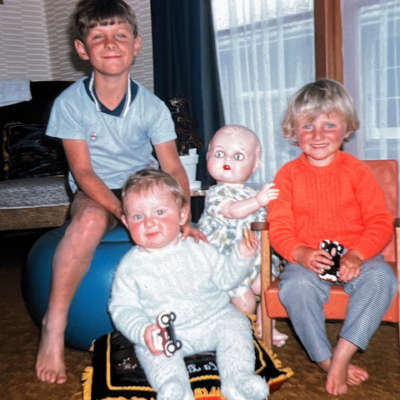
Rickie, Linda, Danny and a freaky doll
One day, two Jehovah’s Witnesses knocked on our mother’s door and left a Watchtower publication, which she took out of politeness. The next week, when she saw them coming up the driveway, she had a cunning plan to crouch down so they couldn’t see her. However, they caught her through the window, and she had to open the door and said she had a bad back and couldn’t stand up or talk at the moment! The persistence of the two Jehovah’s Witnesses who initially knocked on our door managed to strike up a Bible study with her, and the rest was history. Our family found this quite humorous for years.
Our mother was in a terrible state; her ex-husband was an alcoholic who left us when I was 2 1/2 years old. While we never went without, there was no doubt that we were poor, and our mother was struggling. When a group of people showed her love and compassion and gave her a community, she certainly jumped at the chance to become part of the worldwide brotherhood.
I have various memories of my real father, Bruce Charlesworth. I remember him walking through the front door and breaking all the glass after coming home drunk from the pub one night. Shortly after, my mother and he divorced. I recall him visiting once and giving me a stuffed Basil Brush toy and pushing it in my face, saying, “Boom Boom.” I met my father again when I was 14 years old when he came down from the North Island to attend my brother’s wedding. Ironically, he had the same sense of humor as myself. When I started traveling New Zealand, I thought I would call in and see my father at the age of 23. He wanted to give me a gift – a piece of paper with a whole lot of usernames and passwords to porn sites. This was the biggest impression my father ever gave me as a dad, other than having flashbacks of “boom boom”. Bruce Charlesworth smoked and drank himself to death, having lung cancer at the age of 53. A week before he died, he sent me an email disowning himself as my father, telling me that my mother had a bastard child, just when you thought it couldn’t get any more loving.
Good Times as a Jehovah’s Witness: Memories of Friendship and Community
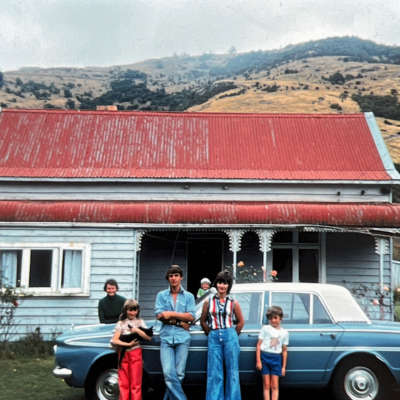
Family holiday with the Jones’ and Martins’ at Okains Bay
Let’s be clear, living life as a Jehovah’s Witness wasn’t all bad. I had a lot of friends. There was a small group of us labeled the “Rat Pack,” consisting of Tony, Jeremy, Paul, Grant, and Kyle. We grew up together, and we all had crushes on the same girls in the congregation. We all wanted the same things out of life, experienced drinking alcohol for the first time together, and loved hooning around in our vehicles. I had an Austin 1100, Tony had a Ford Escort, and Grant got one of the first Japanese imports with electric windows. Paul was a real rebel as he was into motorbikes. Another Ford Escort lover was my dear friend Jeremy. His father, Murray, was a mechanic and one of the best elders in the congregation. He would help us when things went wrong with our vehicles and also gave us a lot of fatherly advice.
One of my fondest memories was going on a family holiday with the Jones’ and Martins’ at Okains Bay. We spent the whole week playing cricket on the beach, fishing off the rocks, and enjoying each other’s company. It was a time when we could forget about the pressures of being Jehovah’s Witnesses and just enjoy life.
Being raised as a Jehovah’s Witness without a father figure meant that I often sought advice from the elders. They took me under their wing and helped shape me into the person I am today. I used to tell people, “Who needs a father when you have five different elders in the congregation to get advice from?” The Jehovah’s Witnesses were my family. It’s hard to imagine losing both your virtual family and your real family in an instant.
The Impact of Disfellowshipping and Speaking Out Against Jehovah’s Witnesses
I was disfellowshipped for the first time when I was around 22 years old. It was devastating. I felt lost and alone. I continued attending meetings, sitting in the back row of the kingdom hall and crying my eyes out at every meeting. The elders must have felt pity for me because I was reinstated after only four months.
But 12 months later, I was disfellowshipped again. I spent the next 12 months trying to get back in, but I eventually gave up. My downfall, or from other people’s perspective, my saviour, was my inability to control my sexual urges. Having sexual relations before marriage was not allowed, and this was something I struggled with, which led to my disfellowshipping and my eventual failure to get reinstated. I hope you can empathise with me as this is truly one of the most personal experiences to publicly post on my BLOG, broadcast on the WHAT: DE HEK PODCAST and stream on my YOUTUBE channel ‘but what the Hek’. I will let you judge whether the Jehovah’s Witness organisation had an impact on me, or my family members who died from suicide. This is pretty raw information so it’s not for people to read who want to continue living a sheltered life, so if this is you, stop reading now.
The organisation labels people who speak out about them as apostates and I was taught to avoid apostates at all costs. I believe this is one reason a lot of people don’t speak out about the organisation, as we don’t want to be labelled as bad. In the modern day, non JW world, it’s called discrimination. Another reason why it has taken me 30 years to discuss this, is my respect for my mother and for all the sadness she’s had in her life. I don’t want her to have any more pain as she feels she has already lost her son, daughter and husband. However, she just gets stronger in her faith every day as they are taught that they will get persecuted closer to the end of the system of things and need that increased strength.
The more I speak out about the religion and the effects it has had on my life, the bigger the wedge the organisation drives between me and my family. These days my immediate family hate me and the silence towards me is deafening. Their strategy is to shun you, in the hope that you were going to return to the flock, apparently this is done out of love for my welfare. The Jehovah’s Witness religion is one of the most selfish religions in the world, as it really is all about unconditional love for Jehovah at all cost. The hope is that if you are faithful, you will live on a paradise earth and every other wicked person will be destroyed, including family members and friends that have been disfellowshipped or who don’t follow the beliefs of the organisation. So, if you serve Jehovah and do exactly what he says you will get through, everyone else will perish and you will not have any grief to live with in paradise.
The Impact of the Jehovah’s Witness Organisation on Mental Health and Suicide

Danny de Hek – The Crypto Ponzi Scheme Avenger
I’m a bit of a storyteller, and I’m a pretty open person. The story I’m about to tell you has been inside my head for quite a few years, and it’s time for me to share it with you.
My stepfather and my sister both died from suicide at the age of 36. I believe they did it because of the pressures that the Watch Tower Bible and Tract Society puts on people to live up to high standards. I was born in 1970 and have lived a pretty good life to date, but that wasn’t always the case. I’m not bitter and twisted; it’s just my life experience I’m sharing.
I’m very active in ex-Jehovah’s Witness Facebook groups and comment on YouTube videos far too much. Often, I tell people that two people in my immediate family died from suicide, and I believe it is due to the pressures that the Jehovah’s Witness organisation put on their lives. I believe that they couldn’t live up to the high expectations, and this was the reason they died from suicide.
What blows me away is the response I get from Jehovah’s Witnesses. This peace-loving group doesn’t show empathy or any sensitivity. Instead, they are cruel, unkind, and harsh with their words, and they instinctively defend the organisation and dismiss any connection between suicide and the cult.
Robert de Hek: A Life Cut Short
My story starts with me telling you a little bit about my stepfather, Robert de Hek. The reason I am called Danny de Hek is that I wanted to continue the family name. These are the names of my family: Danny de Hek (that’s me), Rickie Charlesworth (my half-brother), Linda Warfield (my sister), Trish Kidd (my mother), Samantha McConchie (my niece), Ashley Warfield (my nephew), and Robert de Hek (my stepfather) – we are family!
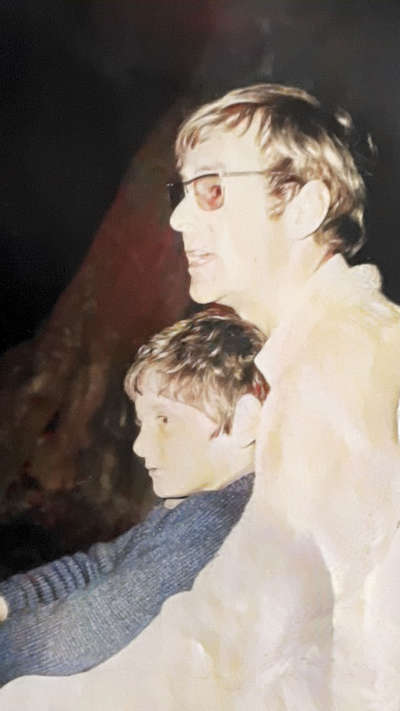
Robert de Hek and Danny de Hek
My stepfather, Robert, immigrated from Holland sometime around 1970 with his brother Bert, who lived in Auckland with his young family while we were based in Christchurch.
Robert was the life of every party; he was funny and very witty. He was also one hell of a shopper, never satisfied or content. Looking back, I feel he was trying to find happiness by purchasing items. A typical Saturday morning saw us kids being filed into the HQ Holden station wagon and driving off to New Brighton Mall, often returning with a car full of stuff that we didn’t really need. From a kid’s perspective, it was fun times for us all, and from the outside, we probably looked like a normal Kiwi family.
A big part of my life was dealing with the silent treatment. Robert would go for two or three weeks without talking to the family. However, when someone turned up unexpectedly, he would be perfectly normal, humorous, and witty. And I assume that when he was working for his clientele as a painter and decorator, he acted exactly the same. I believe he was either bipolar or battled with depression. However, I’m no psychologist!
Trish Kidd and Robert de Hek were Jehovah’s Witnesses. Anyone who didn’t know the situation at home would think they were just two normal Jehovah’s Witnesses who actively preached the word of Jehovah from door-to-door. Hopefully, they didn’t look for people hiding in their houses!
The 1979 Mount Erebus disaster really affected Robert, so much so, he spiralled down to a new low. One day shortly after the disaster, he decided to end his life. He told my mum he was going to kill himself, so she lay down behind the back of the car so he couldn’t drive off. However, he said if she didn’t move, he would drag her inside the house. This was the last time my mother saw Robert alive.
He drove to our family camping spot in Coe’s Ford and drank whiskey from a glass milk bottle as he gassed himself in his car. Children on a school trip found him in the morning.
The Aftermath of Suicide and Life with Rickie Charlesworth
My mother was devastated, and the congregation elders quickly got involved. Alan and Dave came around in the evening and told my sister and me that my stepfather had taken his own life. I still remember forcing myself to cry as I didn’t even know what it really meant. I was nine years of age, and my sister was eleven.
My mother blamed herself for his death and carried the shame associated with someone who showed disrespect for their life. Even seven years after Robert died, I would still wake up to my mother crying. I would ask, ‘Are you crying about Robert?’ and she would answer, ‘Yes.’ I would reassure her by saying, ‘That’s okay as long as I know what you’re crying about,’ and go back to sleep. This was what my life was like for many years. I also remember my mother locking herself inside the bathroom, and we had to call a family friend to talk her out of the bathroom as she wanted to end her life. Despite not having anything to do with me now, my mother and I still share a close bond today.
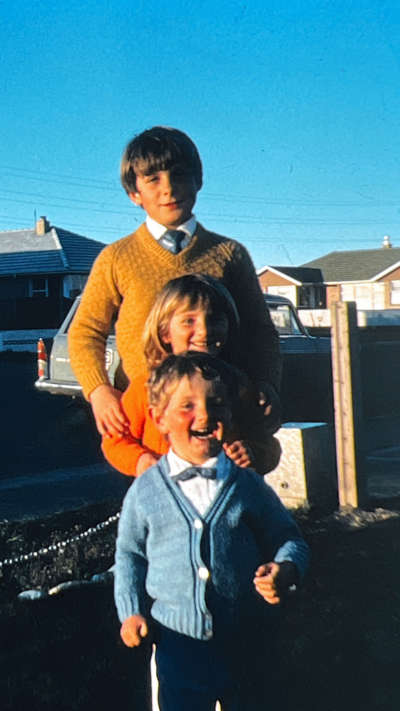
Rickie, Linda and Danny dressed for a JW meeting
After Robert died, my half-brother Rickie Charlesworth resumed his position as the head of the household. He was just a teenager, more into his own life and very selfish, showing little empathy. He was hard-nosed and stubborn, and nine years older than me. I remember one day Rickie had an argument with my mother after Robert died. She was complaining about something he was doing while washing his car. Suddenly, Rickie got so angry with my mother that he picked up the bucket of soapy water and threw it in her face. Rickie showed little respect for anyone and employed a ‘she’ll be right’ attitude, which was irrelevant, especially when Robert was around.
Anger was something that was hard to control for myself and obviously for Rickie as well. I believe he is also a victim in all of this. It would be fair to say that I don’t blame my brother for his actions, as it was a hard time for all of us.
Rickie had to move aside for the 18 months that Robert was in our lives, and after Robert left, Rickie resumed his position as the head of the household. It was clear that Rickie resented Robert, and looking back, Rickie did his best to be a good provider for the family. To this day, he continues his faith as a Jehovah’s Witness. There’s no doubt that Rickie had a major impact on my life; he was a role model, got married at a young age, had three children (sadly, all of these children are no longer active Jehovah’s Witnesses), and also divorced. Recently, his daughter got disfellowshipped, and despite living ten doors down from her, he is now shunning her from his life, hoping she will return to Jehovah and his earthly organisation.
I’ll be totally honest – a lot of my upbringing is actually quite blurry, and I can’t remember many other things from the age of 10 to 15. I still have a lot of flashbacks about things that happened.
However, I have a few more stories to tell. I do remember my sister at the age of 14 sneaking out of her bedroom window and doing what 14-year-old girls probably do, like sneaking out to space invader arcades. The answer to this problem was helping my brother nail her bedroom windows closed to prevent her from escaping at nighttime. Another time, my sister had gotten a new 12-speed racing bike, which she loved, but as a punishment, my brother decided to get it out of the garage, put it on the front lawn, and turn the sprinkler on it. He told her that it would rust and be ruined, which was meant to force her to be a good girl and to stop her from being a rebellious teenager. I didn’t help either. I remember spying on her walking home from school and watching her hide her cigarettes to prevent my mother from finding them. She would get angry with me when she found out her stash was destroyed.
With all the dramas that the family was experiencing, we did not know how to deal with the situation that we had been forced into. This made my mother stick even closer to the religion, as it was like a crutch that she relied on in her time of need. Mum used to say she was unworthy to be a witness. I was ticking all the boxes as a Jehovah’s Witness. I even started auxiliary pioneering, spending 60 hours a month knocking on people’s doors, which made my mother very happy.
Linda Warfield’s Life of Struggles: Drugs, Prostitution, Mental Health, and Suicide Attempts
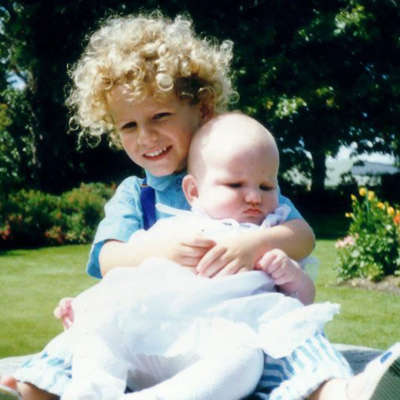
Ashley Warfield and Samantha McConchie
My sister became quite a wild child. She smoked, started doing heavy drugs, and got into prostitution. Linda spent the majority of her time living life to the fullest. She was the life of any party and lived in Sydney for a few years, then finished up getting married. I remember her telling me that she used to tell her husband she was running a catering business, and she would go out and prostitute herself at nighttime. Once her marriage ended, she returned to New Zealand with Ashley, who was only 18 months old at the time. At this time, I was flatting, and one of my flatmates took a liking to my sister, and they ended up having a relationship, and she got pregnant. Andrew was disfellowshipped from the Jehovah’s Witness organisation for his actions.
My sister ended up having two children. When Samantha was born she got a severe case of postnatal depression. One day the police notified us that a family friend had reported Linda because she was trying to smother Samantha at the age of 2 1/2, which was a horrific thing to hear about for everyone.
Linda was admitted to Princess Margaret Hospital, drugged to her eyeballs and receiving electric shock treatment. She spent the next 2 1/2 years in and out of hospital, trying to get on top of her postnatal depression. She was a frequent visitor to Sunnyside Hospital, which was a mental asylum.
I remember Linda’s multiple suicide attempts. One that I will never forget was when she cut herself so much, she required 47 stitches up one arm and 25 up the other arm. I still shake my head when I read those words.
The Tragic Story of Linda Warfield: The Struggles of Battling Depression and Addiction
One day, I received a screaming phone call from her. I rushed around to her house to see that her car had been driven into the house. Linda and her lesbian lover had decided to do a Thelma and Louise. Their plan was to drink a bottle of vodka each to give them enough courage to take their own lives. Somehow, this resulted in an argument, and Linda called me to fix it all. I remember razor blades, physically having to break up the argument, calling for police help, and having to convince the three police cars, with their sirens blazing, that I wasn’t the aggressor. I told the police to look at their wrists, and then we were rushed to the 24-hour surgery in a police car. The icing on the top was my sister telling me on the way that she had been talking to my dead father all afternoon.
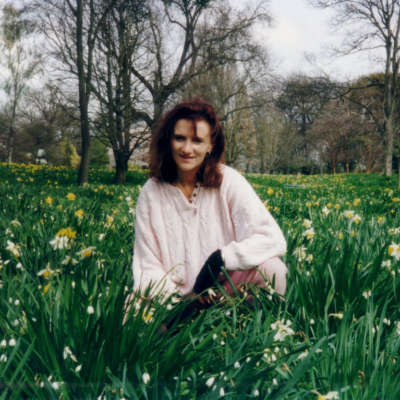
Linda Warfield at 34 years of age
I could tell you stories all day long. I always seemed to be the person my sister would call when she got herself in trouble. We were actually very close, even if we fought like cats and dogs growing up. I spent years supporting her, and I lost count of the number of times I had to help her move house. I had a relationship with her washing machine that I do not miss, especially the time she decided to live in an upstairs apartment, and I had to carry it up the stairs. I would take her to her psychologist, and I even attended some of the sessions with her. I listened as she shared incredibly sad and very personal experiences, which I will keep between me and my sister.
One last freaky story – I decided to return home at 10 o’clock one Friday morning when my sister was back at home living with the family again. She had the video, Pink Floyd’s “The Wall,” playing on TV extremely loud, and all the windows of the house were open. I looked through the window and saw her cutting herself with a razor blade. I had to take her to the doctor immediately. I had to manhandle her into the car and throw a duvet over her as she was not clothed. She was then taken to the hospital in an ambulance. She had cut her wrist once again and overdosed on all the medication. The doctor said I had saved her life this time. If you looked at my sister’s arms, you would see racing stripes up and down from previous suicide attempts.
Two Lives Lost by Suicide: The Devastating Effects of Religious Pressure
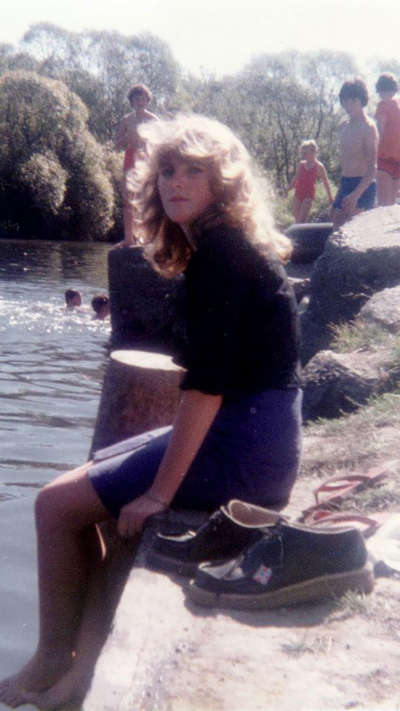
Linda Warfield at 14 years of age
On December 3rd, when my sister was 36 years old and on 15-minute suicide watch at Sunnyside Hospital, she took her own life by hanging herself off the window ledge with her belt. My stepfather, Robert de Hek, also took his own life on December 3rd, and he was also 36 years old! There’s no doubt in my mind that my stepfather’s suicide and the pressures that the Jehovah’s Witness organisation put on individuals had a major impact on everything that happened in both Linda and Robert’s lives.
I don’t think it takes a psychology degree to know that people suffer from depression when they can’t live up to the expectations that a religious cult puts on people. It’s a known fact that many ex-Jehovah’s Witness people died from suicide. I know firsthand what it’s like to be excommunicated from something that you used to support yourself like a crutch. It’s devastating. I was excommunicated during a time of need, and I lost the majority of my family, including my mother, my brother, and all the people that I grew up with when I was trying to deal with all the things that were going on. This still continues to this day.
I remember the funeral, which we couldn’t hold at the Kingdom Hall, and seeing all of the family friends looking at me as I gave a speech about Linda’s life. I remember saying that Linda had been planning this day for years and that we should celebrate it with her. I looked directly at those same families who had helped support us when we were going through terrible times, coming to terms with Robert’s suicide, but who were no longer speaking to me because I was disfellowshipped. Yet here I was, standing on the stage, looking at those very people. I will never forget what I said.
“If Linda were standing here and talking to you, she would want to thank all the people who did those random acts of kindness for our family when we were growing up, including the Joneses, the Martins, and the Fords. This is a sad day for us, but a peaceful day for Linda.” It was an interesting experience, being able to look people in the eye and talk to them, while they wouldn’t talk to me because they were still part of the Jehovah’s Witness cult.
Jehovah’s Witnesses and Disownment: Coping with Loss and Grief
So, I’m disfellowshipped, and my mother is still clinging onto the Jehovah’s Witness organisation with all her might. She simply loves the organisation more than her own son. My mother and I stepped in to continue bringing up Linda’s son, Ashley. She agreed to let me move into the sleepout at the back of the house, and I would drop Ashley off at childcare in the morning and she would pick him up in the afternoons. This was probably the most normal my life had been since I was disfellowshipped. Mum was still trying to encourage me to come back to Jehovah, but I had had enough. I was sick of the religion, and I didn’t believe in it anymore.
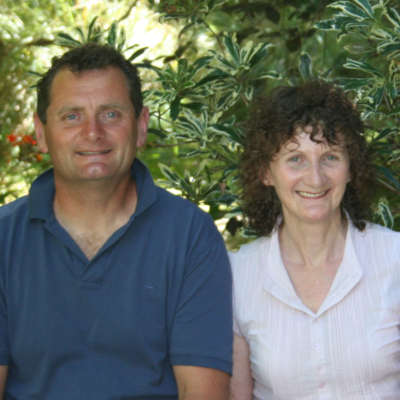
Danny de Hek and Trish Kidd
I have been through a lot with my mother. The Jehovah’s Witnesses disowned us when my father took his own life, because it was considered disrespectful and shameful. They left us to deal with the aftermath ourselves and we were not even allowed to have a memorial service for him in the Kingdom Hall. I was so young at the time that I didn’t get to go to the funeral, and for years, I held out hope that he might still be alive somewhere.
When Robert de Hek took his own life, I didn’t get a chance to say goodbye or have any closure. I was disfellowshipped at the age of 23, but I moved back to the family home to help raise my nephew Ashley. Samantha, my other niece, was looked after by her father who had been reinstated as a Jehovah’s Witness and had remarried. We used to get the kids together on weekends so they could spend time with family. Linda was still battling addiction at this time and eventually moved back in with us as well.
This religion has caused us nothing but pain. It has been a crutch for my mother, and to be honest, it was for me at one point as well. I don’t resent the people in the religion for the way they treated my mother or our family; I simply don’t believe it’s the true religion. I see the other side of it, the money-making side that uses people to keep the organisation running.
Lack of understanding of mental health and negligence by the Jehovah’s Witnesses
It’s true that my stepfather and my sister may have had mental health issues and could have benefited from professional help instead of just advice from elders with no training in that area. The Bible states that you shouldn’t show disrespect for your life, as it is a gift from Jehovah. Mental health is not specifically addressed in the Bible. These days, the Jehovah’s Witnesses believe it’s a sickness, but they still won’t allow a memorial service in the Kingdom Hall for someone who takes their own life. It seems like they’re just trying to keep up appearances.
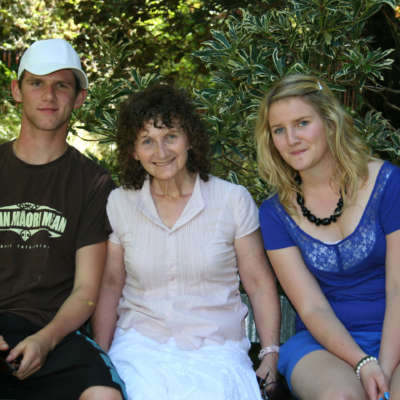
Ashley, Trish and Sam the day we spread Linda’s ashes
Samantha was raised by her father, Andrew, and is now married with her own family. She was sheltered from a lot of what happened with her mother and doesn’t like me talking about it. Even though she has shown some curiosity and wanted to know more, she’s still trying to process everything. In the meantime, she gives me the silent treatment.
Ashley tried living with my brother for a few years, which didn’t last long. Eventually, he moved back to the family home and lived with my mother. The only relationship Ashley has with his family is with my mother. I’ve always treated Ashley like he’s my son. He thinks I should just let my ageing mother push her religion on me. Ashley has stepped up when it comes to looking after the welfare of my mother.
I’m proud of my sister’s children Samantha and Ashley. I’m also proud of my brother’s children, Levi, Jessie, and Jasmine, especially as they haven’t let this organisation bog them down and have got on with life. They probably think I am a crazy uncle who has a chip on his shoulder about the Jehovah’s Witness organisation, which is probably not too far from the truth. I honestly feel it’s one of the most selfish religions in the world, but I am no longer a brainwashed, heartless robot that knocks on your door.
Navigating out of a Religious Cult and finding Closure and Support
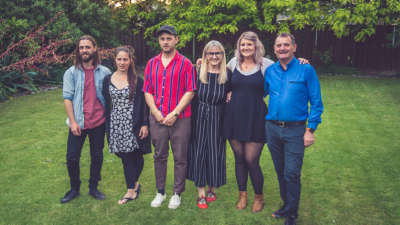
The survivors from our Jehovah’s Witness family group – Taken 2019
They used to talk about the elders in the congregation as shepherds looking after their sheep. If you think about any shepherd that you know, normally he’s trying to keep the flock together so he can take them to the slaughter to make a living. This isn’t far from the truth. The Watch Tower Bible and Tract Society is a man-made religion, and their numbers are declining at a steady rate. They are now sending missionaries out to third-world countries, seeking lost sheep. I truly believe they’re doing this to get their numbers up again.
It is saddening to think that if I did die or I took my own life, like I could’ve done, whether any of my family would ever miss me or shed a tear. Imagine contemplating whether you would attend a funeral if someone from your family dies. Doesn’t that sound like an unnatural decision to make?
I will never get closure, and I’m certainly not a prodigal son. These people who hold onto the “truth” like my dear mother would simply not be able to survive without her belief in a paradise earth, as she is too invested. With the constant repetition of brainwashing techniques that you are continuously bombarded with when attending the meetings, it is too hard to just walk away and start a whole new way of thinking. After all, they have your family and friends.
If you get involved with The Watch Tower Bible and Tract Society and choose to turn your back on Jehovah, the first thing they will do is strip away your family and friends, and they say they do this out of love! This one action alone can push people over the edge, just like they did with my sister Linda and my stepfather Robert.
The aftermath of being part of this organisation is life-changing, and it affects people differently. For me, watching my nephews and nieces navigate out of the religious cult compels me to speak out. I am a survivor, and there are many other survivors. If you are one of them and you feel lonely or depressed, you are welcome to join our community on our private Facebook group “Ex-Jehovah’s Witnesses Family,” where you can share your experiences with a new family.
P.S. If you like this article, please click “like” or provide comment, as that will motivate me to publish more. Share and inspire. Thank you.

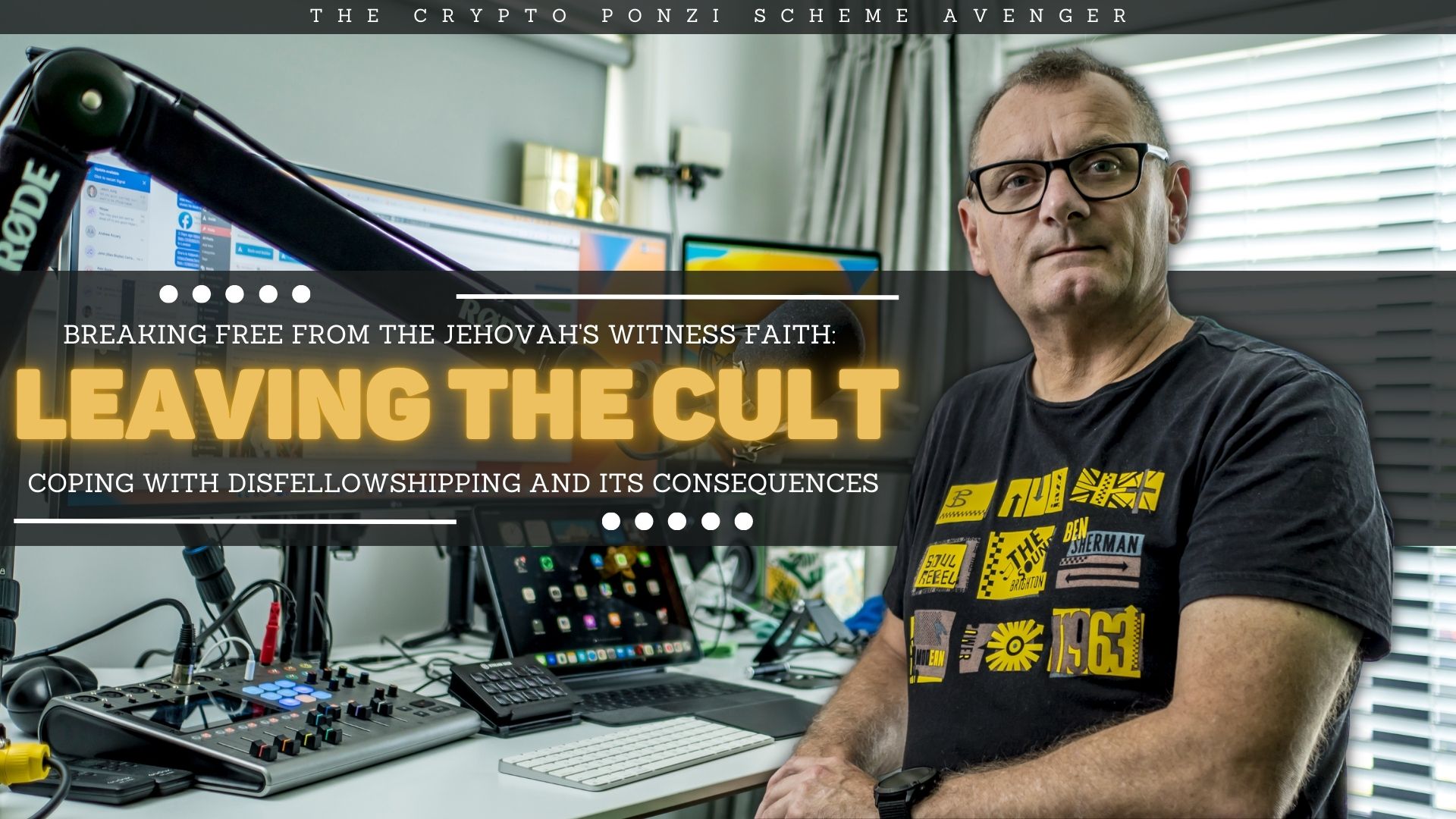
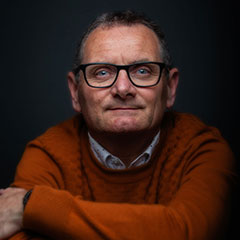
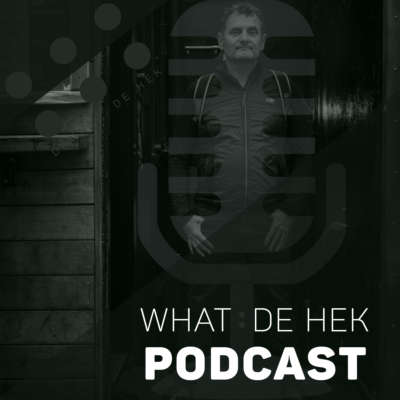
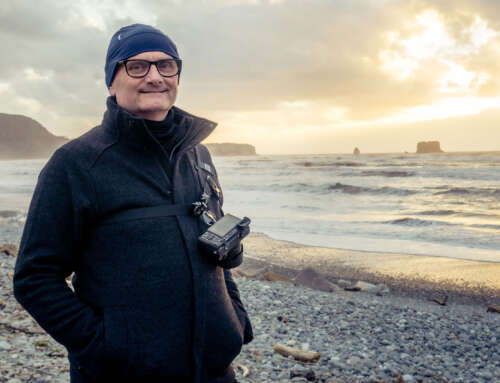

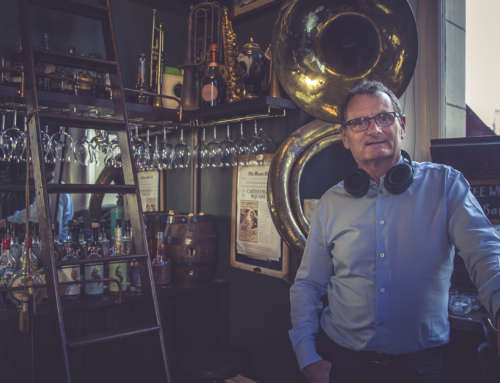
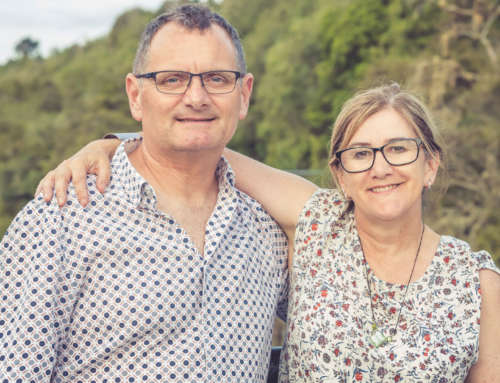
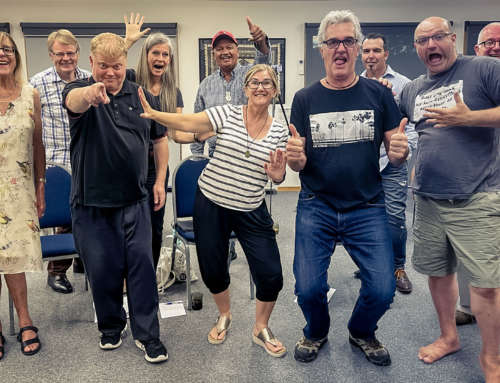
Leave A Comment